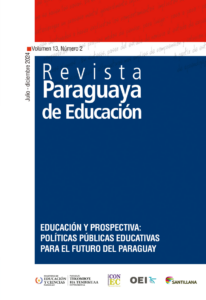Diseños experimentales y su contribución a la medición de impacto de programas sociales y educativos: análisis del estudio experimental del programa “Atención educativa oportuna para el desarrollo integral de niños y niñas de 3 años”
| Year | : | 2024 |
|---|---|---|
| Author/s | : | Claudia Pacheco, Rodolfo Elías, Hugo Speratti, Oscar Gaona, Juan Jose Diaz, Blanca Aquino |
| Area/s | : | Education and learning |
Pacheco, C., Elías, R., Speratti, H., Gaona, O., Díaz, J. J. y Aquino, B. (2024). Diseños experimentales y su contribución a la medición de impacto de programas sociales y educativos: análisis del estudio experimental del programa “Atención educativa oportuna para el desarrollo integral de niños y niñas de 3 años”. Revista Paraguaya de Educación, 13(2), 63- 70.
The objective of this article is to analyze the scope and limitations of experimental studies for measuring the impact of a child care program. To achieve this, the research examines a study that aims to estimate the impact on the overall development of children involved in the project “Timely Educational Support for the Comprehensive Development of Children Aged 3 and 4 in Asunción and 10 geographical departments of the country” conducted by the Ministry of Education and Sciences (MEC). To measure the impact, the study used an experimental design and employed the Propensity Score Matching methodology. This research note includes the main results, focusing the analysis on the domains of child development established in the Engle Scale (2012), which evaluates developmental dimensions (cognitive, language and communication, and motor skills). The results indicate that there is an effect on the development of children in the language dimension, showing a greater score gain (development level) among the children in the intervention group compared to the control group. Based on this, the importance of deepening these findings through other approaches, including qualitative research, is emphasized.







